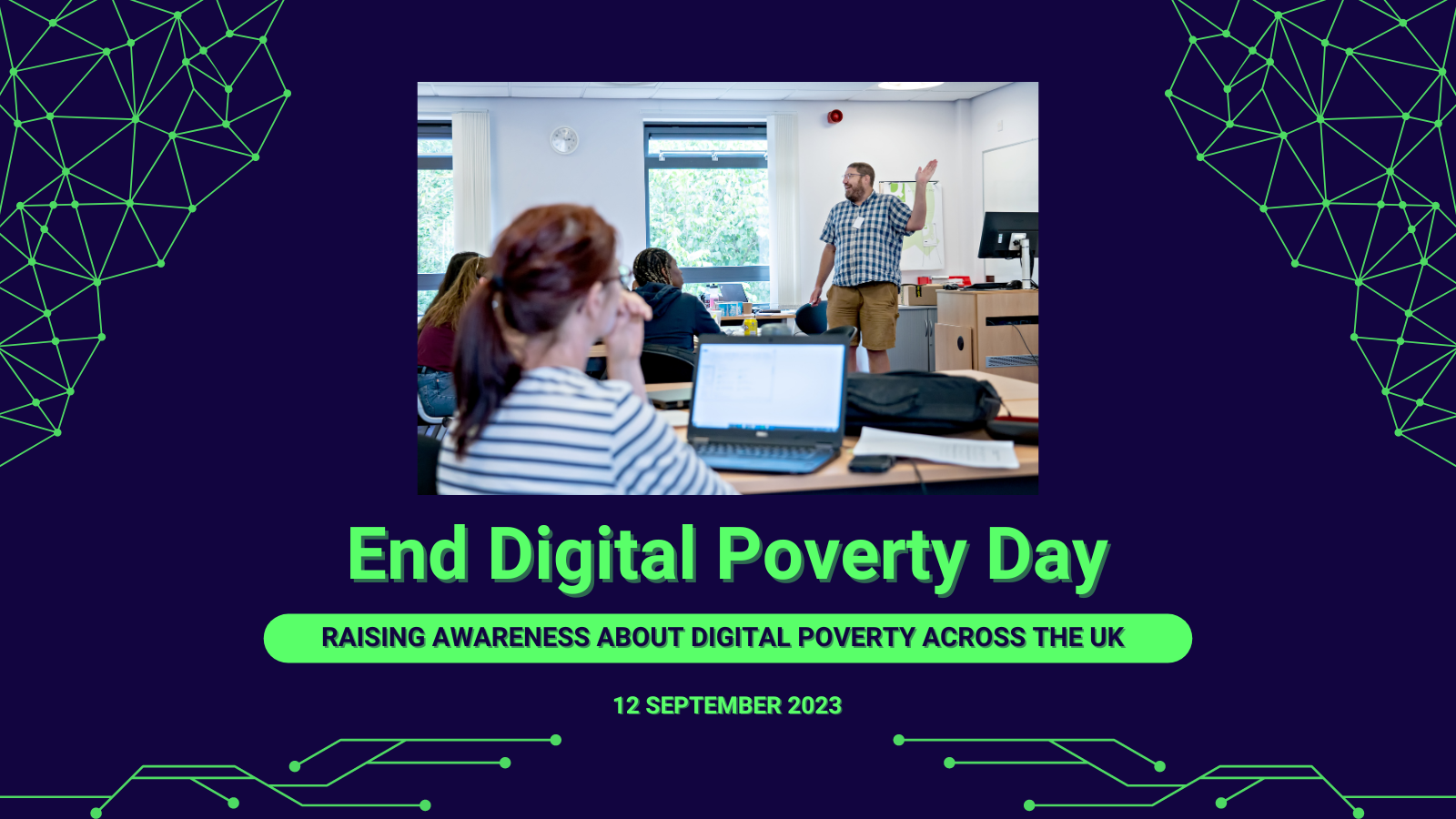Creating a fairer world by ending digital poverty
12 September 2023

Today we are marking #EndDigitalPovertyDay, a nationwide initiative dedicated to raising awareness about the issue of digital poverty across the UK and empowering individuals.
Dave Gibbs, Education Strategy Lead at STEM Learning, explores the digital divide in the UK and how education can play a central role in closing the gap.
Digital poverty: an overview
Ending Digital Poverty means much more than improving access to digital devices; indeed, mobile devices are used by around 94% of UK citizens. While this leaves many without access – only some of whom actively choose to avoid digital devices – the mobile revolution has made smartphones almost ubiquitous.
The Digital Poverty Alliance defines the determinants of digital poverty to be devices and connectivity, access, capability, motivation, and support and participation. Across many of these factors, divides stubbornly remain and education can play a massive part in closing the gap.
How can we make a change?
Having access to a device is clearly an enabler, and part of the solution. Understanding the benefits that putting digital devices to purposeful use and having the skills to do so are crucial, too, and the 5-16 computing curriculum has a vital role to play. The National Curriculum has laudable aims including helping young people to evaluate and apply information technology, and to be responsible, competent, confident, and creative users of IT.
A previous NCCE report took a deep dive into digital literacy, and highlighted how the Teach Computing Curriculum progressively builds skill, understanding and confidence. In essence, effective teaching and learning in computing has the potential to level the playing field, building cultural capital among all young people. Learning about IT systems and their use, then being given the time and support to apply this knowledge, grows habits and self-efficacy, so that technology becomes a go-to solution when tackling problems or challenges.
The breadth of the curriculum enables young people to use technology creatively; to solve difficult mathematical or data-heavy problems; to communicate and collaborate effectively and to share their ideas and knowledge, and a well-planned curriculum can help them to master these capabilities over time. Whatever the study options that young people pursue after KS3, and whether they include academic or technical qualifications in computing and digital, the National Curriculum should provide the right start in a digitally rich life.
Improve your digital skills!
As highlighted by the 2021 NCCE report, it is highly recommended that teachers continue to develop their own digital literacy alongside their ability to support learners’ digital literacy through their teaching.
We've collated just a handful of the courses that we offer to those looking to enhance their digital skills whilst teaching:
- 'Introduction to Primary Computing' (primary)
- 'Impact of Technology' (primary and secondary)
- 'Introduction to Cybersecurity' (secondary)
- 'Databases and SQL' (secondary)
- 'Introduction to Computer Systems, Networks, and Security' (secondary)
STEM Learning also offer a range of intensive digital skill CPD courses on a range of subjects, from cyber security to data analysis and augmented reality products. Find out how you can get involved here.
Let us know how you’re honouring End Digital Poverty Day this year by tagging @WeAreComputing on X and using the hashtag #EndDigitalPovertyDay.